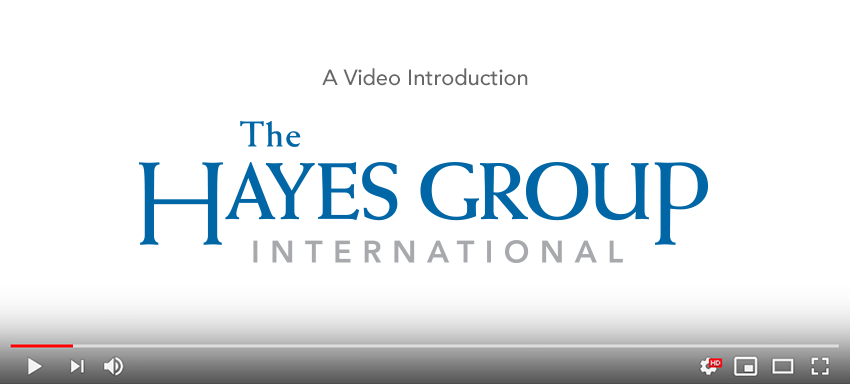Balancing Relationships Can Prevent Future Disaster

Handling stress. Managing time. Preventing burnout. What’s the secret?
Obviously, there is no secret or magic formula. However, one factor which often contributes to our effectively handling our work is the ability to balance our home, community, and work relationships.
In this article I will discuss our relationships and how to manage them. In part II I’ll discuss how we can strengthen and maintain balance in our home, community, and work relationships.
First, let’s define the term relationship. The definition I like, which as first used by Dr. David Travland, is that a relationship is a dynamic contract between two people or groups of people. The two key words are “dynamic” and “contract.” Dynamic indicates activity, force, or change; contract indicates agreement.
Relationships, these dynamic contracts between people, are developed because of our human interdependence. As individuals we need each other. We need each other for survival, such as food, shelter; for the good life, such as a job, security; as well as for love and companionship.
At work we develop a relationship with our manager, our employees, our peers, and other workers. We need them, and they need us. In the community we offer our services where we feel we can contribute. We recognize that the community needs us, and we want to give because we also need it. We develop personal relationships because as human beings we need love, companionship and nurturing.
In all of our relationships, there is an exchange process. We give, and we get. Through experience and as normal human beings we expect to get when we have given. For example, if we stop to open a door for someone, we tend to expect to be thanked in return. If we spend time listening to someone, we expect to learn something or to understand something or someone, and at some later time to be listened to.
As an employee, if I “bust my butt” and turn out quality work for my boss, I expect to get something in return—perhaps material, a bonus, chance for promotion, lunch; perhaps psychological, a thank you, a complimentary memo—or at least I expect recognition of my accomplishments on my performance appraisal. At home if I fix dinner for the family, I might expect praise; I might expect them to eat it; or I might just expect them to not complain until after they’ve tasted it.
In our relationships as we give and get, we all tend to keep internal ledgers. In other words, consciously or subconsciously, we keep track of what we give and we keep track of what we get. There is a little counter inside our heads that ticks away, and when in any given relationship we feel the ticks are all on one side of the ledger, we feel uneasy. The greater the imbalance in the ledger, the greater the tension or stress we feel in the relationship. Some of us feel tension when we are receiving disproportionately to our giving. But most of us keep better track of what we give, or don’t get, and feel the most tension when we perceive we are giving to the relationship considerably more than we are receiving.
This giving and getting is the contract on which our relationships are based. It is seldom written and is frequently not even spoken. But it is there. When we do a good job, we expect something in return.
Yet we’re all different. Some of us expect more than others. Some of us have expectations that are different than others. Some of us would like to be able to give and give and give without ever expecting anything in return. Yet, at some point, that internal ticker makes each of us aware of the imbalance in the ledger, and we feel the tension and stress.
The overworked executive, the hard-working employee, the volunteer, the spouse — each begins to feel unappreciated in spite of his or her good intentions.
If we want to handle stress, manage our use of time, and prevent burnout, one of the things we need to do is to consciously manage our relationships. And, in order to manage our relationships, we need to do more than give and get. We need to invest in the other person or persons in order to get the return we need. Or, to look at it another way, sometimes we have legitimate expectations, but we need to make investments in order to have those expectations met. For example, a manager expects dedication, high energy, and initiative from employees. In order to have that expectation met, however, the manager needs to invest in the employee, such as training, coaching, giving authority or providing feedback.
In other words, we can’t expect something for nothing. Managers need to get work done through their employees, but the quality of that work may well depend on the manager’s investments in his or her people. On the home front, we have expectations of our family, spouse, children, but in order to manage that home relationship, we need to make investments of our own.
The two most critical investments are time and energy. They are critical because they are scarce resources. Each of us has only limited time and although it has taken me years to understand, we also have limited energy.
However, what does investing time and energy in relationships have to do with handling stress, managing time, preventing burnout? In order to manage our relationships effectively, we need to plan our investments wisely. We need to consider our priorities and the returns we need, want and expect. Then, we need to consciously make those investments of time and energy where they count the most.
We also need to remember that investments can be long-term. We invest in our children — expecting that in the years to come they will be happy, well-adjusted, law-abiding citizens. We expect them to respect us, to be a friend, or even a confidante. We invest in our jobs, expecting reasonable salary increases, recognition when deserved, or job security in the future. We make major investments in our spouse as he or she finishes school, looks for work, makes a difficult job change, or loses a family member. We don’t expect an immediate return. But we do expect the imbalance to be temporary and expect a similar investment by our spouse should the need arise.
Sometimes we make the mistake of investing time without investing comparable energy. The result frequently is a bad investment. If we spend time with someone, but our mind is elsewhere, more often than not, we’re wasting our time with that person. On the other hand, when we’re short on time, we can make up for it with energy that that is focused on the other person – often referred to as quality time.
In managing our relationships and determining how we should / will invest audit our time and energy, I recommend formulating a relationship our time and energy, I recommend formulating a relationship audit.
List what the other person, such as the employee, manager, spouse or peer, expects from you. If some of the expectations are unreasonable, you and the other person may need to discuss them. Of those expectations which are reasonable, look objectively at how well you’re meeting them — where you could or should be investing more wisely.
Then list what you expect from the other person. Objectively try to eliminate those expectations which are unreasonable. Of those which you perceive as reasonable, which are not being met? Why not? Are you not investing sufficiently to be able to expect those returns? Or do you need to discuss your expectations with the other person? With this kind of audit and open communication, strong relationships can be developed and maintained. The result is better use of time and less stress both at home and at work.

